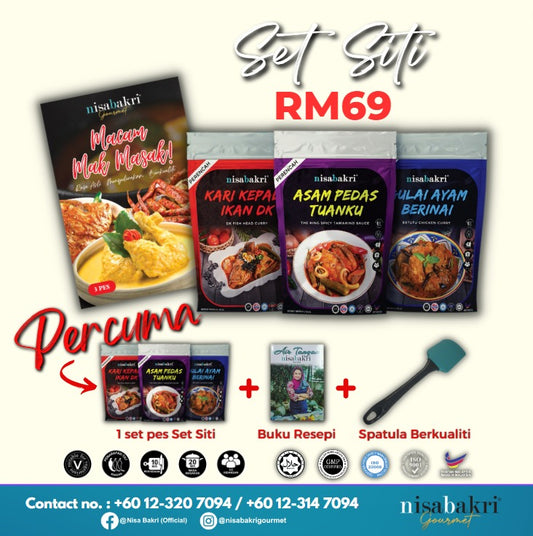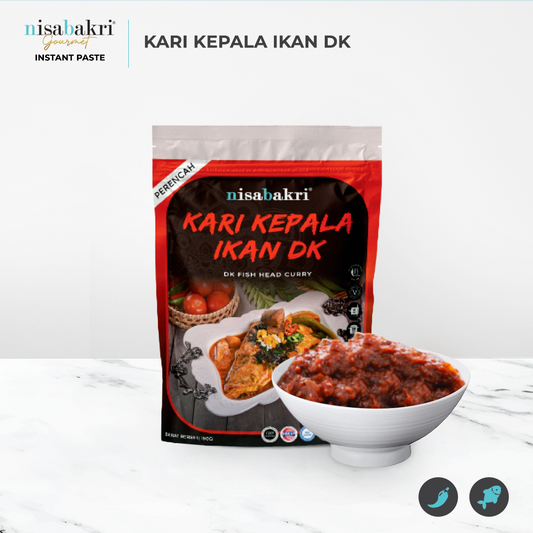Making the Perfect Curry: A Guide to Choosing and Using Curry Powder
Curry powder is a popular spice blend that is used in many different cuisines around the world. It is typically made up of a mixture of spices such as turmeric, cumin, coriander, ginger, and chili powder, although the exact blend of spices can vary depending on the recipe.
The origins of curry powder can be traced back to India, where it has been used in cooking for centuries. However, it wasn't until the 18th and 19th centuries that curry powder started to gain popularity in other parts of the world, particularly in Britain and other parts of Europe.
Today, curry powder is a staple ingredient in many dishes, from classic Indian curries to fusion cuisine and beyond. Its unique blend of spices can add depth and complexity to a variety of dishes, and it is often used to season meat, vegetables, soups, and stews.
Whether you're an experienced cook or just starting out, curry powder is a versatile and flavorful addition to any pantry. So why not give it a try and see what new culinary creations you can come up with?

What is Curry Powder?
Curry powder is a blend of spices that is commonly used in Indian, Southeast Asian, and Caribbean cuisines. It typically includes a mixture of ground spices such as turmeric, coriander, cumin, ginger, fenugreek, and chili powder, although the exact blend of spices can vary depending on the recipe or region.
Curry powder can be found in different forms, ranging from mild to hot, and is often used to add flavour, color, and aroma to a variety of dishes. It is commonly used to season meat, poultry, fish, vegetables, and legumes, and can be added to soups, stews, and sauces.
Although powder curry is commonly associated with Indian cuisine, it was actually created by British colonialists in India in the late 18th century, as a way to replicate the complex flavors of Indian cuisine back in Britain. Today, curry powder is a popular ingredient in many global cuisines and is enjoyed by people all over the world.
Factors to consider when buying and storing curry powder?
Here are some factors to consider when buying and storing homemade curry powder:
Buying:
- Quality of the Spices: When buying curry powder, it is important to consider the quality of the spices used in the blend. Look for brands that use high-quality, fresh spices to ensure the best flavor and aroma.
- Heat Level: Curry powders can vary in their heat level, from mild to very hot. Consider the heat level that you prefer and choose a curry powder that matches your taste preferences. If you're not sure, start with a mild or medium heat level and adjust to taste.
- Ingredients: It is important to check the ingredient list to ensure that there are no additives or preservatives in the curry powder. Some curry powders may also contain salt, so be aware of the sodium content if you're watching your salt intake.
Storing:
- Airtight Container: Store curry powder in an airtight container to prevent moisture and air from affecting the flavor and aroma. A glass jar with a tight-fitting lid is a good option.
- Cool and Dark Place: Store curry powder in a cool, dark place away from light, heat, and moisture. Avoid storing it near the stove or other heat sources, as heat can cause the spices to lose their flavor and aroma.
- Shelf Life: Curry powder has a shelf life of about 6 months to a year, depending on how it's stored. Check the expiration date on the package and use it within the recommended time frame to ensure the best flavor and quality.
What are the Ingredients of Curry Powder?
The exact ingredients in curry powder can vary depending on the recipe and region, but here are some common organic ingredients:
Turmeric
Turmeric is a bright yellow spice that is often used in curry powder. It has a slightly bitter, earthy flavor and is known for its anti-inflammatory properties. Turmeric is also responsible for giving curry powder its distinctive yellow color.
Cumin
Cumin is a spice with a warm, earthy flavor and a slightly nutty aroma. It is often used in curry powder to add depth and richness to the blend.
Coriander
Coriander is a spice that comes from the seeds of the cilantro plant. It has a citrusy, slightly sweet flavor and is often used in curry powder to balance out the other spices.
Ginger
Ginger is a root spice with a pungent, slightly sweet flavor. It is often used in curry powder to add a warming, spicy kick and to complement the other spices in the blend.
Chili Powder
Chili powder is a blend of ground chili pepper and other spices, such as cumin, garlic powder, and oregano. It is often added to curry powder to provide heat and depth of flavor. The level of heat in curry powder can vary depending on the amount and type of chilli powder used.
What are the Health benefits of curry powder ingredients?
Here are some potential health benefits of the ingredients commonly found in curry powder:
Turmeric
Turmeric contains a compound called curcumin, which has anti-inflammatory and antioxidant properties. Studies have shown that curcumin may help reduce inflammation, improve brain function, and lower the risk of chronic diseases such as heart disease and cancer.
Cumin
Cumin is a good source of iron, which is important for healthy blood cells and oxygen transport. It also contains compounds called terpenes, which may have anti-inflammatory and antimicrobial properties.
Coriander
Coriander contains compounds that may have antioxidant and anti-inflammatory effects. It may also help regulate blood sugar levels and support digestion.
Ginger
Ginger has been used for centuries for its medicinal properties, which include anti-inflammatory and antioxidant effects. It may also help relieve nausea, reduce muscle pain and soreness, and lower blood sugar levels.
Chili Powder
Chili powder contains capsaicin, which is responsible for its spicy heat. Capsaicin has been shown to have anti-inflammatory effects, and may also help improve digestion and boost metabolism.
It's worth noting that while the individual ingredients in curry powder may offer health benefits, the amount used in a typical recipe is usually quite small. To reap the benefits of these spices, it's important to eat a varied diet that includes a range of healthy foods and spices.
Some Popular Dishes that use curry powder
Curry powder is a versatile spice blend that can be used in a variety of dishes from different cuisines. Here are three popular dishes that use curry powder:
Chicken Curry
Chicken curry is a popular dish in Indian cuisine that is made with chicken, onion, garlic, ginger, tomatoes, and spices, including curry powder. The chicken is simmered in a flavorful sauce made with a blend of spices, coconut milk, and sometimes yogurt or cream. It is often served with rice or naan bread.
Jamaican Curry Chicken
Jamaican curry chicken is a dish that combines Indian spices with Jamaican flavors. It is made with chicken, onion, garlic, ginger, scallions, thyme, and Jamaican curry powder, which is a blend of spices that includes allspice, turmeric, and cumin. The chicken is simmered in a sauce made with coconut milk and sometimes potatoes and carrots. It is typically served with rice and peas.
Curry Powder Roasted Vegetables
Curry powder can also be used to add flavor to roasted vegetables. A popular combination is cauliflower, sweet potato, and chickpeas, which are tossed with olive oil and curry powder and roasted in the oven until tender and golden brown. This dish is a great way to add more vegetables to your diet and can be served as a side dish or a vegetarian main course.
Conclusion
In conclusion, curry powder is a versatile spice blend that can be used in a variety of dishes to add flavor, depth, and complexity. It contains several spices, each of which may offer different health benefits, such as anti-inflammatory and antioxidant effects. Some popular dishes that use curry powder include chicken curry, Jamaican curry chicken, and roasted vegetables.
If you're looking for high-quality curry to use in your cooking, consider trying Nisabakri Gourmet. Their curry paste is made with a blend of carefully selected spices and is free from artificial colors, flavors, and preservatives. By using Nisabakri Gourmet curry paste in your dishes, you can enjoy the authentic taste and health benefits of this delicious spice blend.
FAQ
1. What is the origin of curry powder?
The origin of curry powder can be traced back to India, where it is used in a variety of dishes. However, the blend of spices we know as curry powder today is thought to have been created by British colonizers during the colonial era.
2. How spicy is curry powder?
The level of spiciness in curry powder can vary depending on the blend of spices used. Some curry powders may be mild and fragrant, while others may be quite spicy. It's always a good idea to taste a small amount before adding it to a dish to get a sense of its heat level.
3. Can curry powder be used as a substitute for other spices?
Curry powder can be used as a substitute for other spices, such as cumin, coriander, and turmeric, in recipes. However, it's important to keep in mind that curry powder is a blend of several spices, so it may not have the exact same flavour profile as the individual spices.
4. Is curry powder gluten-free?
Whether or not curry powder is gluten-free depends on the specific brand and blend. Some curry powders may contain wheat or other gluten-containing ingredients, while others may be gluten-free. If you have a gluten sensitivity or allergy, it's important to check the ingredients list carefully or choose a certified gluten-free brand like Nisabakri Gourmet.



